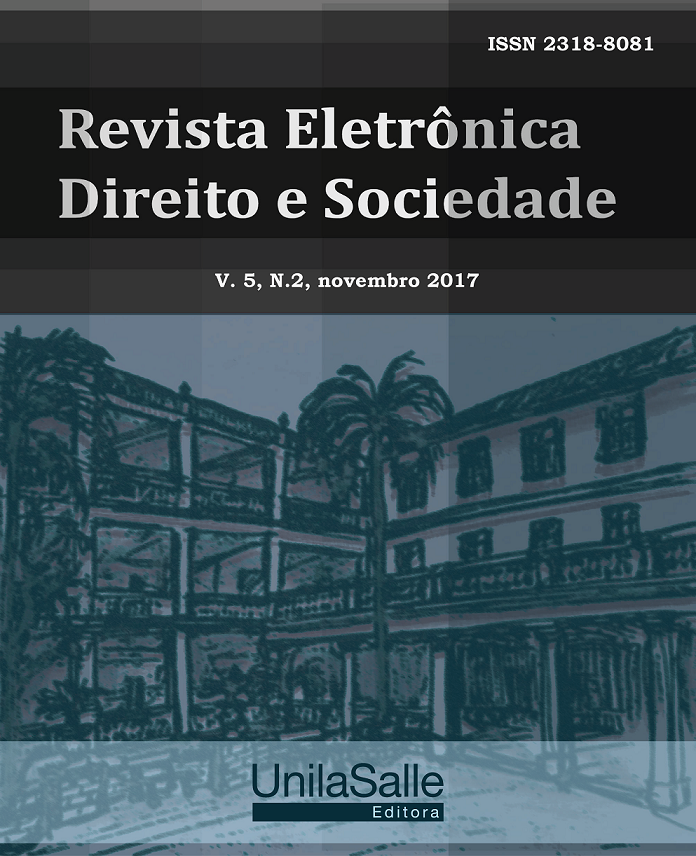Disrespect to human dignity: dialogues between law, literature and culture
DOI:
https://doi.org/10.18316/redes.v5i2.3466Palabras clave:
Law, Literature, Culture, Family Relationships, Monteiro Lobato.Resumen
This article presents an analysis of the tale Negrinha by Monteiro Lobato, first published in 1920 in a storybook of the same name. In this analysis, we establish a relation between Law, more precisely the transformation of family relationships and the fundamental rights inscribed in the article 227 of the Federal Constitution, Literature and Culture, explaining and exemplifying the theme with a literary text. The proposition of the subject is based on the understanding that the mobility of cultural processes acts on the way society regulates, manages and represents, in its rules of social behavior, issues related to the identity of individuals and its bonds. In this regard the tale written by Lobato denounces the violation of human and fundamental rights expressed in the article above, which assume relevance both legal and social as well as cultural, considering that it is the duty of the state, the family and society protect and support the minor. Elements of research in doctrine and legislation will be used to trace the legal aspects present in the theme, followed by an analysis of the suggested tale, given its legal, contextual and cultural aspects.
Descargas
Publicado
Número
Sección
Licencia
Autores que submetem seus manuscritos para serem publicados na Revista REDES concordam com os seguintes termos:
Os autores declaram ter ciência de que mantém os direitos autorais concedendo à REDES o direito à publicação.
Os autores declaram ter ciência de que o trabalho submetido será licenciado sob a Licença Creative Commons atribuição não-comercial que permite o compartilhamento do artigo com reconhecimento da autoria e publicação nesta revista.
Os autores declaram ter ciência que em virtude de os artigos publicados nesta revista tem acesso público e gratuito.
Os autores declaram, sob as penas da lei, que o texto é inédito e original e que têm ciência de que identificada a existência de plágio, os autores plagiados serão informados – para querendo, tomarem as medidas legais nas esferas cível e criminal – e, os autores do plágio terão seu acesso à revista bloqueado.
Os autores declaram que – em caso de coautoria – todos contribuíram significativamente para a pesquisa.
Os autores obrigam-se a fornecer retratações e (ou) correções de erros em caso de eventual detecção.
Os autores obrigam-se a não publicar o texto submetido a REDES em outra Revista eletrônica (ou não).

A Revista Eletrônica Direito e Sociedade - REDES - está licenciado com uma Licença Creative Commons Atribuição-NãoComercial 4.0 Internacional.
Baseado no trabalho disponível em http://revistas.unilasalle.edu.br/index.php/redes/about/submissions#copyrightNotice.
Podem estar disponíveis autorizações adicionais às concedidas no âmbito desta licença em http://creativecommons.org/.

